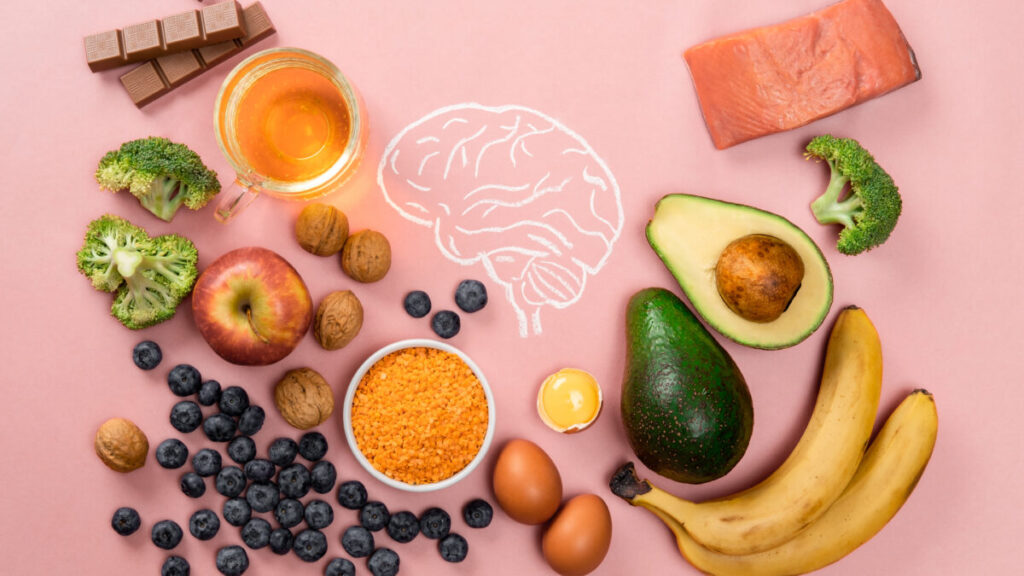When addressing mental health, most people concentrate on therapy, meditation, and medications, frequently neglecting the significant impact of nutrition. What we eat affects not only our physical health but also our mental well-being, influencing how we feel, think, and experience the world. The connection between nutrition and mental health is becoming more evident, with studies showing that the foods we eat can greatly affect our mood, energy, and overall mental well-being. Understanding this link can guide us in making healthier choices that benefit both our physical and mental well-being.
The Mind-Gut Connection: How Your Food Affects Your Brain
It’s not just about eating healthy to feel good physically—what we consume can influence the brain, our emotions, and our mental clarity. The gut-brain axis, a direct connection between the digestive system and the brain, helps explain why what you eat can have such a profound effect on your mood and overall mental health.
Your gut is home to trillions of bacteria that help digest food, regulate inflammation, and produce neurotransmitters—the chemical messengers in your brain. A balanced, healthy microbiome can help promote mental clarity, a positive mood, and reduced anxiety. In contrast, an imbalance in gut bacteria, often caused by poor eating habits, can contribute to symptoms of depression, anxiety.
Key Nutrients for Mental Health
Certain nutrients play a vital role in supporting brain function and mood regulation:
- Omega-3 Fatty Acids: Found in fatty fish, walnuts, and flaxseeds, omega-3s help reduce brain inflammation, improve neurotransmitter function, and support mood regulation, lowering the risk of depression and anxiety.
- B Vitamins: B6, B12, and folate are essential for producing serotonin and dopamine, mood-regulating neurotransmitters. Deficiencies can lead to depression and fatigue. Sources include whole grains, leafy greens, and eggs.
- Vitamin D: Known as the “sunshine vitamin,” vitamin D supports mental health, with deficiencies linked to depression. It’s found in fatty fish, fortified dairy, and egg yolks.
- Magnesium: Known for its calming effects, magnesium helps regulate stress hormones and mood. It’s found in leafy greens, nuts, seeds, and whole grains.
- Amino Acids: Amino acids like tryptophan are essential for serotonin production. Sources include turkey, tofu, nuts, and seeds, which support mood stability.
The Role of Blood Sugar in Mental Well-Being
Blood sugar levels play a direct role in mental health. Fluctuation of blood sugar levels due to consumption of highly processed foods can cause irritability, fatigue, and difficulty concentrating—all of which contribute to poor mental health.
“Nutritious food promotes mental clarity and emotional stability”
The Importance of Hydration for Mental Clarity
“Hydration plays a key role in Mental health”
Ensuring adequate water intake is essential for maintaining cognitive function ,balance electrolytes which helps in mental clarity, and emotional balance. Aim to drink plenty of water throughout the day, and limit caffeinated and sugary beverages, which can lead to dehydration.
The Impact of Processed Foods on Inflammation and Mental Health
While some foods nourish the brain, others can contribute to inflammation and mental health issues. Diets high in processed foods, added sugars, and unhealthy fats are linked to chronic inflammation, which can negatively affect the brain. Studies suggest that a diet rich in processed foods may increase the risk of depression, anxiety, and other mental health disorders.
Eating for a Healthy Mind: Practical Tips
- Incorporate Brain-Boosting Foods: Fill your plate with nutrient-dense foods like leafy greens, fatty fish, nuts, seeds, and whole grains.
- Avoid Processed Foods: Minimize the consumption of processed and sugary foods that can cause blood sugar spikes and promote inflammation.
- Eat Balanced Meals: Focus on meals that combine complex carbohydrates, lean proteins, and healthy fats to keep your blood sugar levels stable and your brain fueled throughout the day.
- Hydrate: Drink plenty of water to keep your mind clear and focused.
- Don’t Skip Meals: Skipping meals can lead to blood sugar imbalances and mood swings. Make sure to eat regularly throughout the day.
As Julia Rucklidge (Clinical Psychologist) highlights in TEDx talk – Sub-Optimal nutrition is a significant factor contributing to the widespread mental health crisis. What you eat directly impacts how you feel. Proper nutrition is a powerful tool for boosting mental health, helping you stay positive, focused, and emotionally balanced. By fueling your body with nutrient-rich foods, staying hydrated, and cutting back on processed snacks, you can support your brain and keep your mood stable. Remember, good mental health isn’t just about managing stress or getting enough sleep—what’s on your plate matters too! If you’re struggling, talking to a healthcare professional about combining mental health support with smart nutrition can make a world of difference.
“ Nourish your body, fuel your mind”
Author- D. Sreenidhi Varma
Clinical Dietician
Team Amnax Health

